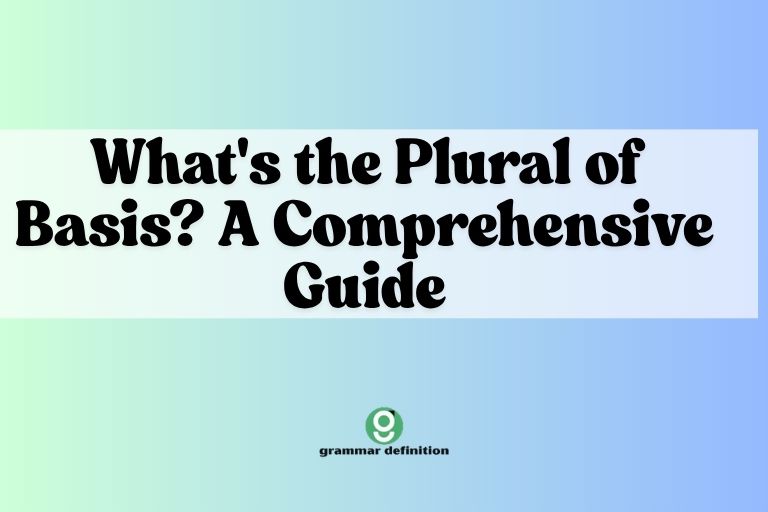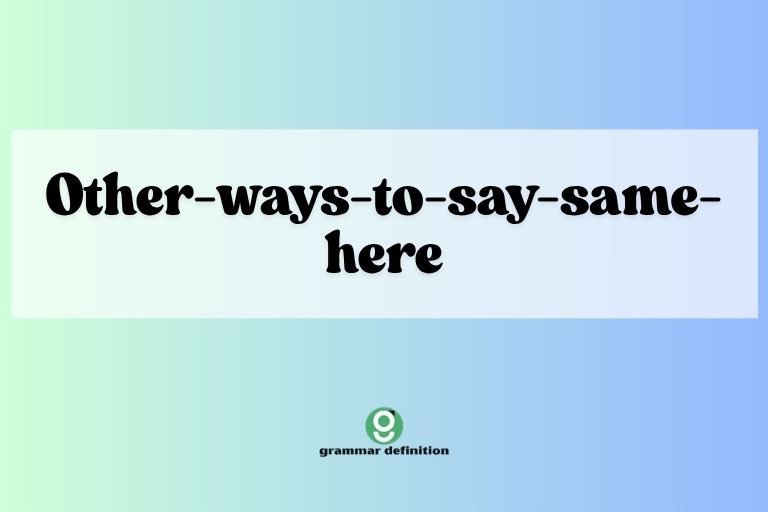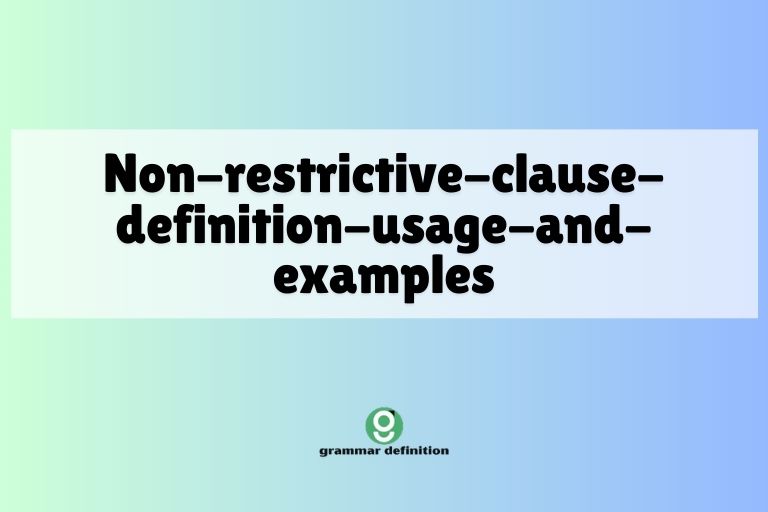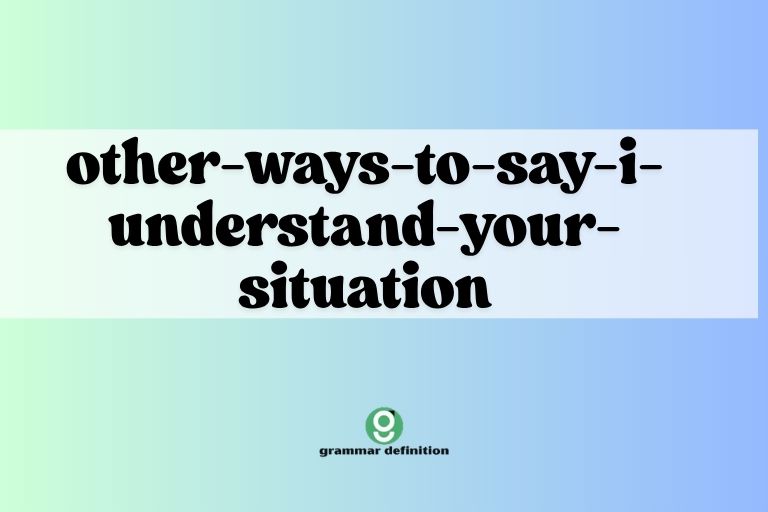Alter vs. Altar: Understanding the Difference
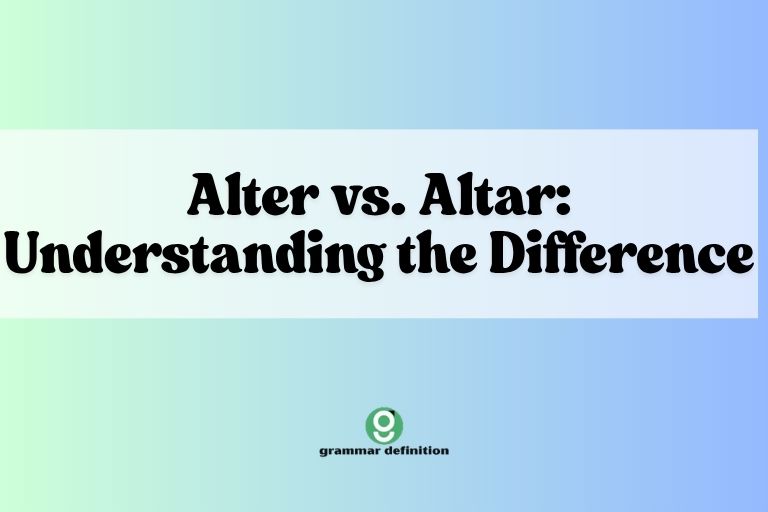
Distinguishing between “alter” and “altar” is crucial for clear and accurate communication in English. These two words, while similar in spelling, have completely different meanings and usages.
Confusing them can lead to misunderstandings and awkward sentences. This article provides a comprehensive guide to understanding the difference between “alter” and “altar,” covering their definitions, structural breakdown, usage rules, common mistakes, and practice exercises.
Whether you’re a student, a writer, or simply someone looking to improve their English skills, this article will equip you with the knowledge to use these words correctly.
This guide is designed for English language learners, writers, and anyone seeking to improve their grammar. By the end of this article, you’ll have a solid understanding of when to use “alter” and when to use “altar”, enhancing your overall language proficiency.
Table of Contents
- Introduction
- Definitions: Alter vs. Altar
- Structural Breakdown
- Types and Categories
- Examples
- Usage Rules
- Common Mistakes
- Practice Exercises
- Advanced Topics
- FAQ
- Conclusion
Definitions: Alter vs. Altar
Understanding the core definitions of “alter” and “altar” is the first step in mastering their correct usage. While they look similar, their meanings are vastly different.
Definition of Alter
Alter (verb) means to change or modify something. It implies making something different in some way, whether in appearance, form, character, or composition. The word “alter” can also be used as a noun, though this usage is less common. As a noun, it refers to the act or process of altering something.
The verb “alter” is commonly used in contexts involving adjustments, revisions, or transformations. It is a versatile word that can apply to a wide range of subjects, from clothing to plans to personal behavior.
The key concept is the introduction of change.
Definition of Altar
Altar (noun) is a table or raised structure in a religious place (such as a church or temple) where sacrifices are offered or religious rites are performed. It is a focal point for worship, prayer, and ceremonial acts. Altars are often found in places of worship across various religions and cultures, serving as a symbolic connection between the earthly and the divine.
The noun “altar” is exclusively associated with religious or spiritual settings. It represents a sacred space where offerings, prayers, and rituals take place.
The presence of an altar signifies a place of reverence and devotion.
Structural Breakdown
Examining the structural elements of each word can solidify your understanding of their distinct roles in sentences.
Structure of ‘Alter’
As a verb, “alter” typically functions as the action word in a sentence. It often takes a direct object, which is the thing being changed. The structure is usually: Subject + Alter + Object. For example, “She altered her dress.”
When used as a noun (less common), “alter” can function as the subject or object of a sentence, referring to the act of changing something. For example, “The alter of the design was significant.”
Structure of ‘Altar’
“Altar” always functions as a noun, typically as the subject or object of a sentence. It often appears with articles (a, an, the) or possessive pronouns (my, his, her). Common sentence structures include: The altar + verb or Preposition + the altar. For example, “The altar was decorated” or “He knelt before the altar.”
The word “altar” often collocates with other nouns related to religion and worship, such as “church,” “temple,” “sacrifice,” and “priest.” These associations reinforce its religious context.
Types and Categories
Exploring the different types of alterations and altars can provide a more nuanced understanding of these words.
Types of Alterations
The verb “alter” can describe various types of changes, including:
- Physical alterations: Changing the physical appearance or structure of something (e.g., altering a garment, altering a building).
- Conceptual alterations: Changing an idea, plan, or strategy (e.g., altering a proposal, altering a course of action).
- Behavioral alterations: Changing one’s behavior or habits (e.g., altering one’s diet, altering one’s attitude).
- Textual alterations: Changing the content of a text or document (e.g., altering a contract, altering a manuscript).
Understanding these categories helps you recognize the broad applicability of the word “alter” across different contexts.
Types of Altars
Altars can be found in various religious and cultural contexts, each with its unique characteristics:
- Religious altars: Found in churches, temples, and other places of worship, used for religious ceremonies and sacrifices.
- Home altars: Small altars set up in homes for personal prayer and devotion.
- Memorial altars: Created to honor deceased individuals, often decorated with photos and mementos.
- Secular altars: Structures resembling altars but used for non-religious purposes, such as artistic installations or displays.
Recognizing these different types of altars helps you appreciate the diverse ways in which this word is used and understood.
Examples
The following examples illustrate the correct usage of “alter” and “altar” in various contexts. By examining these examples, you can gain a better understanding of how to use these words in your own writing and speech.
Examples of ‘Alter’ in Sentences
The following table provides 30 examples of the correct usage of the word “alter” in various contexts.
| Sentence | Context |
|---|---|
| She decided to alter her dress to make it more fashionable. | Fashion |
| The company had to alter its plans due to the unexpected economic downturn. | Business |
| He wanted to alter his eating habits to improve his health. | Health |
| The software update will alter the way the program functions. | Technology |
| The artist chose to alter the painting slightly to achieve the desired effect. | Art |
| The architect had to alter the design of the building to meet the new safety regulations. | Architecture |
| The chef decided to alter the recipe to make it spicier. | Cooking |
| The musician wanted to alter the melody of the song to make it more catchy. | Music |
| The teacher had to alter the lesson plan to accommodate the students’ different learning styles. | Education |
| The politician promised to alter the laws to make them fairer. | Politics |
| The mechanic had to alter the engine to fix the problem. | Automotive |
| The writer decided to alter the ending of the story to make it more dramatic. | Literature |
| The scientist had to alter the experiment to get more accurate results. | Science |
| The manager decided to alter the company’s policy on remote work. | Human Resources |
| The tailor will alter the suit to fit you perfectly. | Fashion |
| We need to alter our strategy if we want to succeed. | Business |
| Can you alter the volume on the radio? | General |
| The weather can alter our plans for the weekend. | General |
| The artist wanted to alter the sculpture’s shape. | Art |
| The city council voted to alter the zoning laws. | Politics |
| The doctor may need to alter your medication dosage. | Health |
| The editor will alter the manuscript before publication. | Literature |
| The programmer had to alter the code to fix the bug. | Technology |
| The committee decided to alter the budget allocations. | Finance |
| The gardener will alter the landscape design to add more color. | Gardening |
| She wanted to alter her appearance with a new hairstyle. | Personal |
| The treaty was altered after several rounds of negotiations. | Politics |
| The recipe was altered to accommodate dietary restrictions. | Cooking |
| The schedule was altered due to unforeseen circumstances. | General |
| The software was altered to improve its performance. | Technology |
Examples of ‘Altar’ in Sentences
The following table provides 30 examples of the correct usage of the word “altar” in various contexts.
| Sentence | Context |
|---|---|
| The bride and groom stood before the altar to exchange their vows. | Wedding |
| The priest placed the sacred objects on the altar. | Religion |
| The flowers on the altar were beautifully arranged. | Religion |
| He knelt at the altar and prayed for forgiveness. | Religion |
| The ancient temple contained a magnificent altar made of stone. | History |
| The candles flickered on the altar, casting a warm glow. | Religion |
| The sacrifice was offered on the altar to appease the gods. | Mythology |
| The worshippers gathered around the altar to sing hymns. | Religion |
| The artist created a sculpture that resembled an altar. | Art |
| The museum displayed a replica of an ancient Roman altar. | History |
| She placed a photo of her deceased grandmother on her personal altar. | Personal |
| The community built a memorial altar to honor the victims of the tragedy. | Community |
| The shaman performed a ritual at the altar to heal the sick. | Spiritual |
| The monk meditated in front of the altar. | Religion |
| The church’s altar is a focal point during services. | Religion |
| He approached the altar with reverence. | Religion |
| The priest blessed the congregation from the altar. | Religion |
| Offerings were placed upon the altar. | Religion |
| The ancient civilization built an altar to their gods. | History |
| The temple’s altar was adorned with gold. | Religion |
| She maintained a small altar in her home. | Personal |
| The flowers on the altar were fresh and vibrant. | Religion |
| The candles illuminated the altar. | Religion |
| He prayed silently before the altar. | Religion |
| The choir sang beautifully near the altar. | Religion |
| The sacred texts rested on the altar. | Religion |
| The priest conducted the ceremony at the altar. | Religion |
| The community decorated the memorial altar with flowers. | Community |
| The artist’s installation resembled a modern altar. | Art |
| The wedding took place in front of the beautifully decorated altar. | Wedding |
Usage Rules
To ensure correct usage, it’s essential to understand the specific rules that govern “alter” and “altar.”
Rules for Using ‘Alter’
- Use “alter” as a verb when you want to express the act of changing or modifying something.
- Ensure that the sentence structure is correct: Subject + Alter + Object (e.g., “I will alter the report.”).
- Consider the context: “Alter” can be used in various contexts, including physical changes, conceptual changes, and behavioral changes.
- Pay attention to verb tense: Use the correct tense of “alter” (e.g., alter, altered, altering) depending on the context.
By following these rules, you can confidently use “alter” in your writing and speech.
Rules for Using ‘Altar’
- Use “altar” as a noun when referring to a religious or sacred structure.
- Use articles or possessive pronouns: “Altar” is usually preceded by articles (a, an, the) or possessive pronouns (my, his, her).
- Consider the context: “Altar” is typically used in religious, spiritual, or memorial contexts.
- Associate with related terms: “Altar” often appears with other nouns related to religion and worship.
Adhering to these rules will help you use “altar” correctly and avoid confusion.
Common Mistakes
One of the most effective ways to learn is by identifying and correcting common mistakes. Here are some frequent errors people make when using “alter” and “altar.”
Common Mistakes with ‘Alter’
Here are some common mistakes people make when using the word ‘alter’:
| Incorrect | Correct | Explanation |
|---|---|---|
| “They prayed at the alter.” | “They prayed at the altar.” | “Altar” is the correct word for a religious structure. |
| “She will altar her clothes.” | “She will alter her clothes.” | “Alter” means to modify. |
| “The alter in his behavior was noticeable.” | “The alteration in his behavior was noticeable.” | “Alter” (noun form) is rarely used; “alteration” is more common. |
| “He stood before the alter.” | “He stood before the altar.” | “Altar” refers to the sacred table. |
| “I need to altar my travel plans.” | “I need to alter my travel plans.” | “Alter” signifies making changes. |
| “The altar to the dress was a success.” | “The alteration to the dress was a success.” | “Alteration” is the correct noun form. |
Avoiding these mistakes will help you use “alter” with greater accuracy.
Common Mistakes with ‘Altar’
Here are some common mistakes people make when using the word ‘altar’:
| Incorrect | Correct | Explanation |
|---|---|---|
| “The tailor will altar the suit.” | “The tailor will alter the suit.” | “Alter” is the correct verb for modifying clothing. |
| “The church had a beautiful alter.” | “The church had a beautiful altar.” | “Altar” is the noun for a religious table. |
| “The alter was decorated with flowers.” | “The altar was decorated with flowers.” | “Altar” is the correct noun. |
| “He wanted to altar his lifestyle.” | “He wanted to alter his lifestyle.” | “Alter” is used to describe changing something. |
| “They made a sacrifice on the alter.” | “They made a sacrifice on the altar.” | “Altar” is the correct term for a religious structure. |
| “She will altar the hem of the skirt.” | “She will alter the hem of the skirt.” | ‘Alter’ is used to change the skirt. |
Being aware of these errors will enhance your understanding and usage of “altar.”
Practice Exercises
Reinforce your understanding of “alter” and “altar” with these practice exercises. These exercises will test your ability to differentiate between the two words and use them correctly in various contexts.
Exercise 1: Fill in the Blanks
Fill in the blanks with the correct word: “alter” or “altar.”
| Question | Answer |
|---|---|
| 1. She needed to _______ her dress for the party. | alter |
| 2. The priest stood at the _______. | altar |
| 3. They decided to _______ their plans due to the weather. | alter |
| 4. The flowers were placed on the _______. | altar |
| 5. He wanted to _______ his eating habits. | alter |
| 6. The wedding ceremony took place at the _______. | altar |
| 7. The company had to _______ its strategy to stay competitive. | alter |
| 8. The candles flickered on the _______. | altar |
| 9. She asked the tailor to _______ her skirt. | alter |
| 10. The worshippers knelt before the _______. | altar |
Exercise 2: Correct the Sentences
Identify and correct the errors in the following sentences.
| Incorrect Sentence | Correct Sentence |
|---|---|
| 1. The tailor will altar the suit for you. | The tailor will alter the suit for you. |
| 2. They prayed at the alter every Sunday. | They prayed at the altar every Sunday. |
| 3. She wants to alter her appearance. | Correct (She wants to alter her appearance.) |
| 4. The church has a beautiful alter. | The church has a beautiful altar. |
| 5. He decided to altar his lifestyle. | He decided to alter his lifestyle. |
| 6. The sacrifice was made on the alter. | The sacrifice was made on the altar. |
| 7. I need to altar my travel arrangements. | I need to alter my travel arrangements. |
| 8. The alter was decorated with flowers. | The altar was decorated with flowers. |
| 9. Can you altar the volume on the radio? | Correct (Can you alter the volume on the radio?) |
| 10. The wedding was held in front of the alter. | The wedding was held in front of the altar. |
Exercise 3: Sentence Construction
Write five sentences using “alter” and five sentences using “altar” to demonstrate your understanding.
| Word | Sentence |
|---|---|
| Alter | 1. The programmer needed to alter the code to fix the bug. |
| Alter | 2. She decided to alter her diet to improve her health. |
| Alter | 3. The company will alter its marketing strategy next quarter. |
| Alter | 4. He had to alter his travel plans due to unforeseen circumstances. |
| Alter | 5. The artist chose to alter the painting’s color palette. |
| Altar | 1. The priest placed the sacred chalice on the altar. |
| Altar | 2. The bride and groom exchanged vows before the altar. |
| Altar | 3. The flowers on the altar were a beautiful arrangement of lilies and roses. |
| Altar | 4. He knelt at the altar and prayed for guidance. |
| Altar | 5. The ancient temple featured a grand altar made of marble. |
Advanced Topics
For advanced learners, exploring the etymology and figurative language associated with “alter” and “altar” can provide a deeper appreciation of these words.
Etymology and Historical Usage
The word “alter” comes from the Latin word alterare, meaning “to make other.” Its usage has remained consistent over time, referring to the act of changing or modifying something.
The word “altar” comes from the Latin word altare, meaning “high place” or “structure for sacrifice.” Its historical usage is closely tied to religious practices and sacrificial offerings.
Figurative Language with ‘Alter’ and ‘Altar’
“Alter” is often used figuratively to describe significant changes or transformations in one’s life or circumstances. For example, “The experience altered his perspective on life.”
“Altar” can be used metaphorically to represent a place of sacrifice or devotion. For example, “He sacrificed his career at the altar of ambition.”
FAQ
Here are some frequently asked questions about “alter” and “altar,” along with detailed answers.
- What is the main difference between “alter” and “altar”?
The main difference is that “alter” is a verb meaning to change or modify, while “altar” is a noun referring to a religious or sacred structure.
- How can I remember which word is which?
Think of “altar” as being related to “church” or “religion,” both of which start with vowels like the ‘a’ in ‘altar’. “Alter,” on the other hand, is about taking action to change something.
- Can “alter” be used as a noun?
Yes, but it is rare. It refers to the act of altering something. It is more common to use the word “alteration” instead.
- In what contexts is “altar” typically used?
“Altar” is typically used in religious, spiritual, or memorial contexts, referring to a sacred place or structure.
- Can you provide a simple sentence for each word?
Sure! “She decided to alter her dress.” and “The priest stood at the altar.”
- What are some common collocations with “altar”?
Common collocations with “altar” include “church,” “temple,” “sacrifice,” “priest,” and “worship.”
- Is it ever acceptable to use “alter” and “altar” interchangeably?
No, it is never acceptable to use “alter” and “altar” interchangeably. They have distinct meanings and usages.
- How can I improve my ability to differentiate between these words?
Practice using the words in sentences, read examples, and pay attention to the context in which they are used. Reviewing this guide regularly can also help.
Conclusion
Understanding the difference between “alter” and “altar” is essential for effective communication in English. “Alter” is a verb that means to change or modify, while “altar” is a noun referring to a religious or sacred structure.
By mastering their definitions, usage rules, and common mistakes, you can avoid confusion and enhance your language skills.
Remember to practice using these words in different contexts and to pay attention to the sentences you read and hear. With consistent effort, you’ll be able to use “alter” and “altar” correctly and confidently, improving your overall English proficiency.


